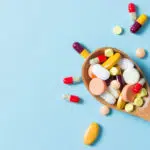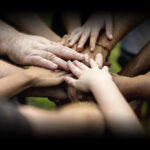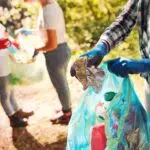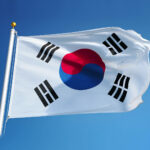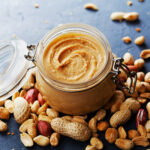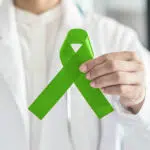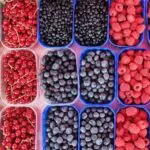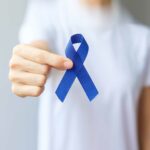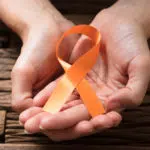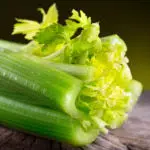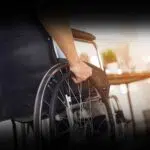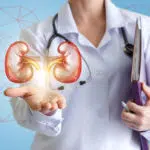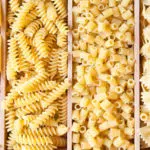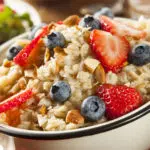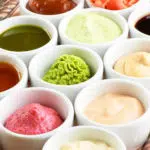As implied by the name, “Caffeine Awareness Month,” March is the perfect time to take stock of your intake of this alertness-inducing chemical. That’s because, despite the growing popularity and variety of teas and other decaffeinated morning brews, tens of millions of Americans begin each day with a cup or two, or more, of coffee. And a large percentage of coffee drinkers refresh their doses of caffeine with even more coffee or soda throughout the day.
Yes, there are proven health benefits of caffeine (reduction in the risk of throat cancer and stroke, for example), but there are serious downsides as well. Consuming more than 400 mg per day (five eight-ounce cups) may trigger anxiety, insomnia, and increased blood pressure. On top of that, as habitual caffeinated coffee drinkers can confirm, there’s often a “crash” when the intake of caffeine is cut off at the end of the day, similar to the empty-calorie “sugar crash” experienced by sweets lovers.
It’s natural in a spare moment to consider the effects of your daily habits, dietary or otherwise. So this month, take the time you might otherwise use to think about improving your work status or strengthening the bond you have with a partner or family member, and take an honest look at your caffeine consumption. Chances are, you’ll come to an important realization.
History of National Caffeine Awareness Month
In 2003, the Caffeine Awareness Alliance formed, with the mission “to provide objective, evidence-based information and advice to help reduce the health, social, and economic harm associated with caffeine abuse and addiction.” The Alliance became a 501(c) nonprofit, and staked a big enough claim with their solid points about caffeine overuse to bring National Caffeine Awareness Month into wide recognition.
If you’re like us, you love your morning joe. But there is simply no argument that caffeine is not an addictive drug, one that’s also medically harmful in the long run. It’s easy to joke about being jumpy from coffee, or to answer the question, “Don’t you think you should get some sleep,” with the clever old refrain, “I’ll sleep when I’m dead.” But the negative effects of prolonged heavy caffeine use are real. Need more proof? The Mayo Clinic recommends that pregnant women reduce or eliminate their use of caffeine. We believe that puts it in a certain category.
So next time you mention getting a cup of coffee with a colleague and they say they don’t drink the stuff, don’t scoff. In the years since National Caffeine Awareness Month became recognized, more and more Americans are reassessing their intake of the famous energy-booster. We’d recommend jumping on that bandwagon, to the extent that you can.
National Caffeine Awareness Month timeline
The Caffeine Awareness Alliance is formed in order to promote a caffeine-free environment for the health of all.
The U.S. House of Representatives decides to amend the Pure Food and Drug Act, adding caffeine as a "habit-forming" and "deleterious" substance.
Three years after one of their coffee bean shipments is accidentally saturated with salt water, German merchant Ludwig Roselius and his colleagues are granted a patent for the first commercially viable decaffeination process.
Friedlieb Ferdinand Runge, a German chemist, is the first to identify and extract caffeine into its purest form.
National Caffeine Awareness Month FAQs
I always have a pot of coffee brewing. Is there any hope?
Reducing your intake is something that can indeed be done. Don’t forget that the recommended dose to stay within healthy limits is 400 mg. That’s three to five reasonably-sized cups a day, so you could start with two in the morning and two in the afternoon, until the healthier habit is formed. A warning, though: energy drinks, sodas, and green teas are also significant sources of caffeine.
I’ll just sip my taurine energy drinks slowly. That lessens the effect of the caffeine, right?
The varying metabolism rates among individuals is a factor, but no, the rate of consumption of a caffeinated product does not reduce the effects of the substance on your body. If you can sip one instead of slamming two or three and keep to that ratio, however, you may be onto something.
HOW TO OBSERVE NATIONAL CAFFEINE AWARENESS MONTH
Walk or run instead of drinking coffee
Instead of relying on caffeine to get you through the day, try exercising. It can be as simple as going for a run after a long, hard day, or starting off your morning with an energy-boosting jog.
Drink more water
Besides keeping you hydrated, providing plenty of energy, helping clear your skin, and decreasing your chances of getting a headache, drinking more water can also help lessen your need for caffeine.
Cut back on your coffee consumption
Don't let caffeine addiction control you. Take this time to reduce your typical coffee intake, whether that's eliminating one cup per day or cutting out coffee for the whole month. You will feel a difference!
5 AMAZING FACTS ABOUT DECAF COFFEE
It’s not entirely caffeine-free
Contrary to what you may have believed, decaf coffee actually contains about two milligrams of caffeine per eight-ounce cup.
Some decafs are better than others
Since the old days of benzene processing, decaffeination has undergone some positive changes, but many manufacturers still use methods that are quite harsh, unlike the gentler “Swiss water decaf” process, which involves simply soaking the green coffee beans in lukewarm water to dissolve the caffeine.
A solid minority
Poll results show that about ten percent of coffee drinkers actually prefer decaf over regular coffee, in fairly even proportions across genders.
More than treated coffee beans
The root of the chicory plant, a flower in the dandelion family, contains no caffeine but tastes similar to a nutty, woody coffee, a fact that has inspired many producers to mix chicory into their decafs.
Even decaf is big business
The original company that stemmed from Roselius’ decaffeination discovery, Cafe HAG, and the first French decaf maker, Sanka, are now properties of Kraft Foods.
WHY NATIONAL CAFFEINE AWARENESS MONTH IS IMPORTANT
A healthy workforce is a productive workforce
Even if you’re on the bottom rung of the hierarchy at your job, the less time you spend “buzzing” on caffeine and chattering at the water cooler or building things out of paper clips, the more real work you’ll do. Your superiors will notice. They’ll start wanting more employees like you.
With age, the importance of health is magnified
Past a certain birthday, most Americans come to the realization that “I’ll worry about it later,” is not the lifestyle that they really want. From cholesterol concerns to early arthritis to erectile dysfunction, the nagging enemies within our bodies seem to multiply as time moves on. Take care of at least one or two concerns by changing any unhealthy relationship you may have with caffeine.
A balance can be achieved
Caffeine does have certain medical uses like fighting OCD or dermatitis, so completely eliminating it from your life may not be the best idea. When we talk about limiting intake, we mean just that. No need to quit “cold turkey,” just establish a reasonable set of boundaries, and you’ll have victory.
National Caffeine Awareness Month dates
| Year | Date | Day |
|---|---|---|
| 2026 | March 1 | Sunday |
| 2027 | March 1 | Monday |
| 2028 | March 1 | Wednesday |
| 2029 | March 1 | Thursday |
| 2030 | March 1 | Friday |

